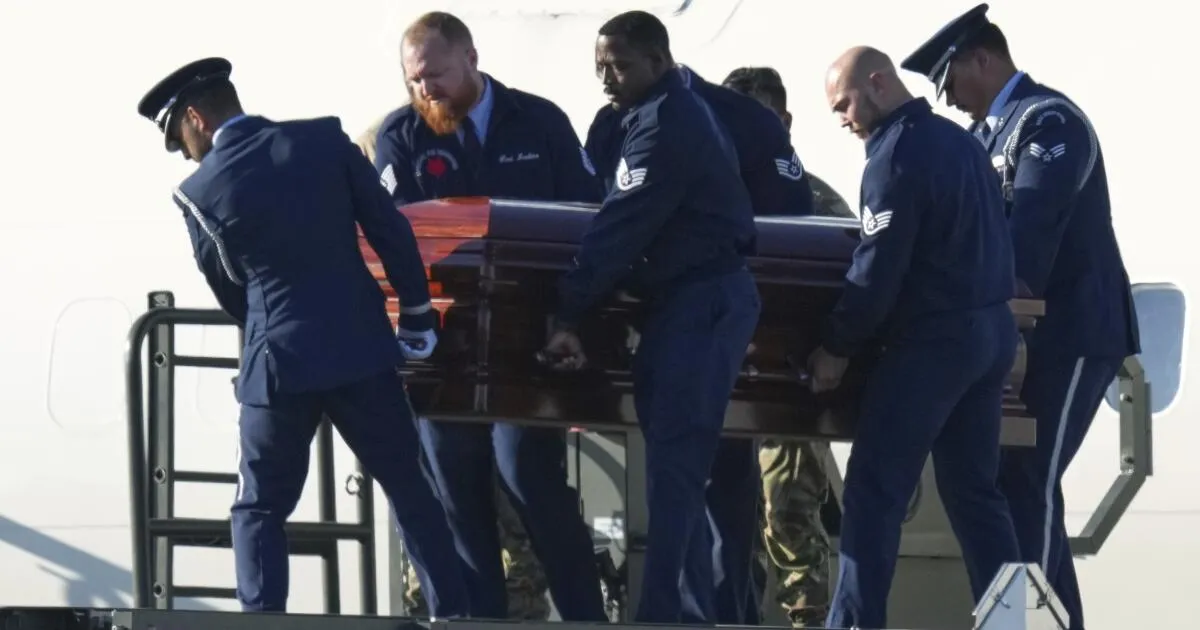
In a shocking turn of events, Tyler Robinson, a 22-year-old from Washington, Utah, has been accused of killing conservative activist Charlie Kirk. This peaceful, close-knit community, where most residents know one another and attend the same church, is grappling with the implications of such a violent act. Kristin Schwiermann, a neighbor and friend, expressed her disbelief, stating, “I’m shocked. That’s not the kid I knew.”
Tyler Robinson grew up in a neighborhood where families were interconnected through the Church of Jesus Christ of Latter-Day Saints, located less than a mile away. Schwiermann noted that the sudden influx of police vehicles at around 7:30 p.m. on Thursday was startling for the residents, who were unaware of the gravity of the situation involving Tyler Robinson. Little did they know, the quiet household three doors down from Schwiermann's was at the center of a manhunt.
As news outlets broadcast images of Tyler Robinson, dressed in a long-sleeve T-shirt and jeans, his father, Matt Robinson, was left to grapple with the grim reality that his son was now a suspect in a high-profile case. According to a law enforcement source, the family sought help from their church bishop, who is also a neighbor, after Tyler expressed suicidal thoughts. This alarming revelation highlighted the struggles the family was facing.
Tyler Robinson was known for his close relationship with his parents and two brothers, often participating in outdoor activities like camping and hunting. Public records indicate that both of his parents held hunting licenses. “They’re close, hardworking and smart,” Schwiermann remarked, reflecting the strong family values that characterized the Robinson household.
Attending Riverside Elementary School, just half a mile from his home, Tyler was recognized as a bright student. Schwiermann, who worked as the head custodian there, recalled him as quiet but sociable, never causing trouble. After graduating from Pine View High School in 2021 with a scholarship, Tyler enrolled at Utah State University to study engineering, although he later took a leave of absence. He subsequently attended Dixie Technical College, where he was in his third year of an electrical apprenticeship program.
Interestingly, Tyler Robinson registered as a nonpartisan voter in Utah, contrasting with his parents, who are both registered Republicans. Reports indicate that he had grown increasingly political in recent years, harboring negative sentiments towards Charlie Kirk, whom he described as “full of hate” and “spreading hate.” This perspective adds another layer of complexity to the investigation.
As authorities delve into the details surrounding the tragic shooting, Utah Governor Spencer Cox stated that a family member informed investigators of Tyler’s growing political views. The investigation has uncovered a bolt-action rifle abandoned in a wooded area, along with ammunition that bore various markings. Notably, one bullet casing was engraved with the phrase, “Hey fascist! Catch!”
In light of the evidence, experts in extremism caution against hastily ascribing a motive. Brian Levin, a professor emeritus at Cal State San Bernardino, emphasized the challenges in identifying the motivations of lone attackers, who often exhibit a mix of grievances and mental distress influenced by their social circles and online interactions. Joan Donovan, an expert on extremism from Boston University, added that the engravings on the bullet casings appear to reflect a collection of nihilistic sentiments rather than a cohesive message.
As the investigation continues, the community of Washington, Utah, remains in shock. The tragic case of Tyler Robinson serves as a reminder of the complexities surrounding youth, mental health, and the influences of online culture.